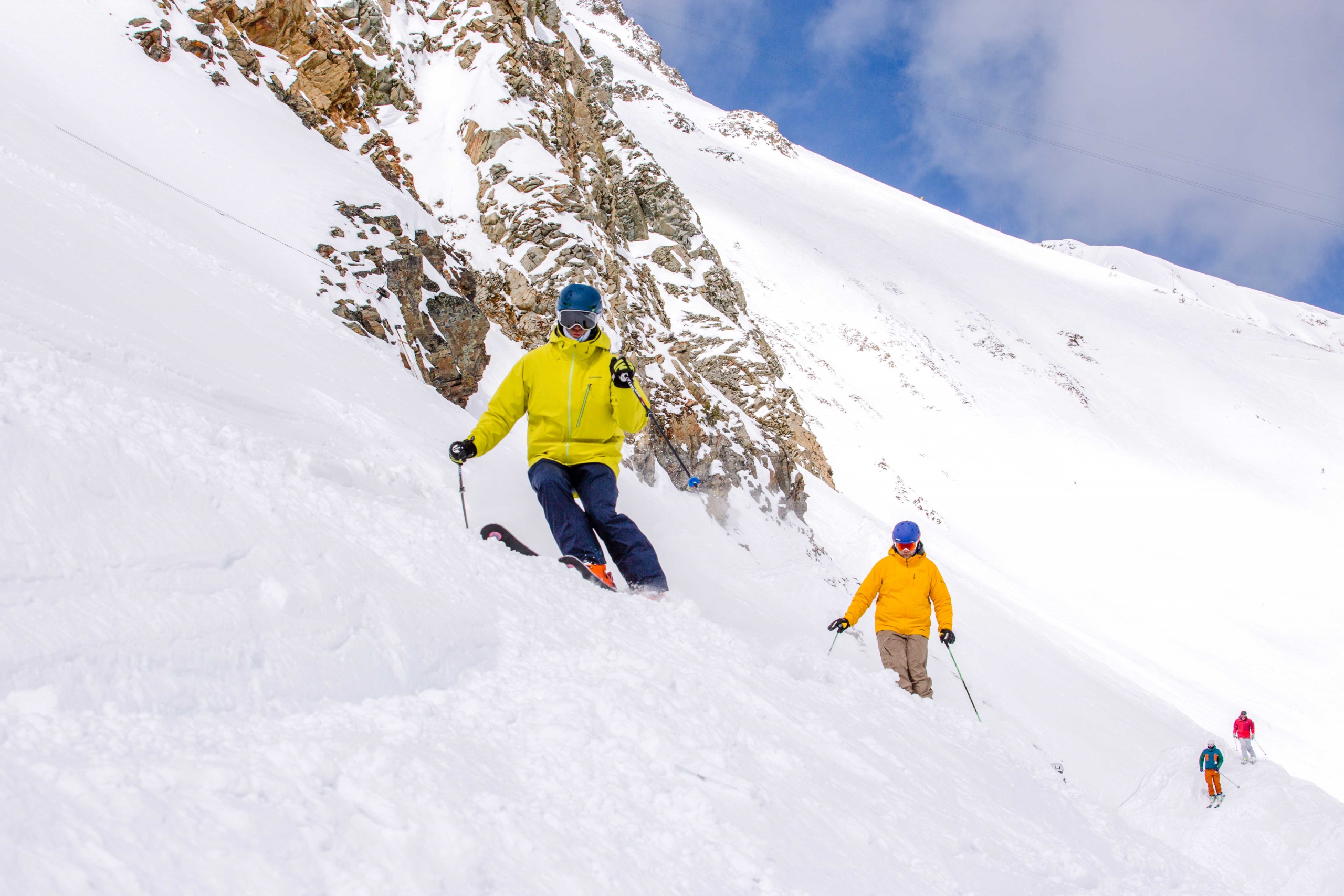Five Tips to Help You Pass Your Certification Exams From Stephen Helfenbein
If you are looking to pass your Level I, Level II, or Level III this year, use these tips from PSIA-AASI National Team member Stephen Helfenbein. Helfenbein knows that certification is a big part of being a member, and anyone who has achieved their certification, at any level, knows the sense of accomplishment that comes with passing. Use these five tips to help you prepare so you can show up to your exam with the confidence to perform your best.
1) ESTABLISH A GOAL AND SHARE IT: Setting a goal and letting others know what it is will help you follow through on meeting your goal. Tell your ski school director so they can work with your training schedule, tell your peers going for the same cert so you can practice together, and tell the trainers you know so they can help you look for training and practice opportunities. Often you will need to use resources from both your school and division, so letting others know about your goals will help you with coordinating your schedule and finding opportunities to learn. It will also hold you accountable to your training plan.
2) KNOW THE DIFFERENCE BETWEEN TRAINING AND PRACTICE: Training is structured opportunities that give you the chance to receive information. Practice is time spent on your own taking the most relevant information obtained during training and applying it to your own skiing, riding, or teaching. Going for your certification is a commitment, and you should make both training and practice part of your lifestyle.
3) TRAIN AND PRACTICE TO IMPROVE YOUR CONFIDENCE: Training sessions will show you the demands of the exam, and knowing what is expected of your performance will help you prepare. When you train and practice you will gain the confidence to know you are performing at your best ability. The exam tasks should feel familiar to the point that you can execute them like second nature, this will also help calm your nerves. Keep in mind that true learning is a change in behavior, learning how to perform tasks will help you stay calm on exam day.
4) KNOW HOW TO PERFORM UNDER PRESSURE: In addition to your skiing or riding and teaching skills, you will need to feel comfortable performing under pressure. During the exam your examiners and peers are watching and judging your technique, so its important to feel comfortable performing in front of others. Although exams are not competitive, they can feel like a competition, so practice skiing or riding and teaching in front of your peers.
5) CONTROL WHAT YOU CAN ON THE DAY OF YOUR EXAM: When it comes to performing under pressure focus on the things that you can control to help you feel comfortable in high pressure situations. Practice leading up to your exam will help you relax so you don’t need to focus on your skiing or riding on exam day – you will have already mastered these skills.
How Much Time (Approximately) You’ll Need to Train and Practice for Each Exam:
| Certification Level | Training Sessions | Training Hours | Practice Hours |
| Level I | 1-2 on-snow | 2-6 | 2-6 |
| Level II | 6 on-snow (technical)
3 on-snow (teaching) 3 indoor (MA and lesson planning) |
15-18 | 15-18 |
| Level III | 10 on-snow | 30 | 30 |
| Ed Staff | 6 on-snow
3 indoor |
21 | 21 |
Want to hear more tips from Helfenbein to help you prepare for your certification exams? Check out his recent First Chair episodes on Soundcloud, iTunes, or Google Play by searching for “First Chair.” You can also use the links below to find the episodes on Soundcloud.







